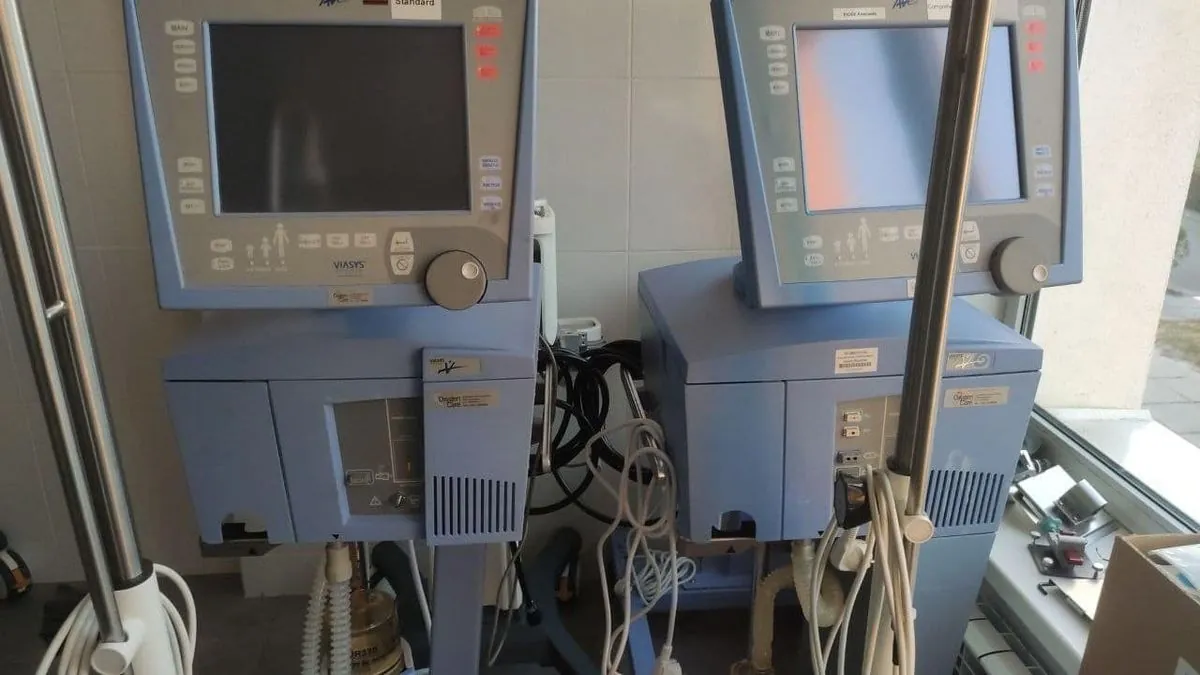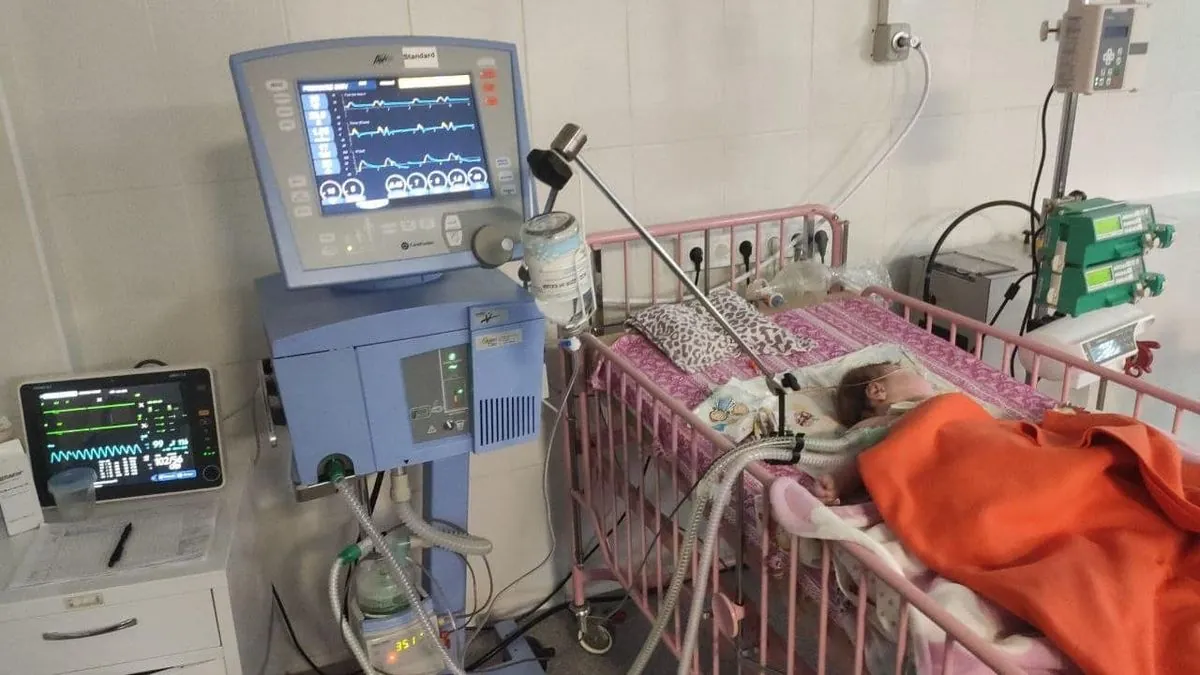A woman volunteer supported by children: why an interior designer from Kyiv region decided to change her life because of Russian aggression
Kyiv • UNN
Victoria Volynets quit her job as a designer and founded the charity foundation Gurtom UA. The foundation brought medical equipment, ambulances, and jeeps to Ukraine for the military, working with Ireland and the Ministry of Health.

After the outbreak of full-scale Russian aggression, she left for Ireland with her children, returned a few months later, quit her job, and devoted herself to volunteering. Such dramatic changes took place in the life of Victoria Volynets, a volunteer from Brovary and founder of the Gurtom UA charity foundation.
Why did they decide to make such changes, how did they affect family relations, what are the main areas of humanitarian aid the foundation works in, what problems does the volunteer movement in Ukraine face today, how do the Brovary authorities cooperate with volunteers - Victoria Volynets told about all this in an exclusive interview to UNN.
- The full-scale Russian invasion caught me with my family in Zakarpattia. The enemy was rushing to Kyiv region, and it was dangerous to return to Brovary. My cousin has been living in Ireland for 15 years, so I decided to go to her.
I lived there for only four months. I wanted to return in April. But the children went to school, so we were waiting for the school year to end, and then we came to Ukraine. I have never seen life abroad for myself, because Ukraine is my home.
I started volunteering back in Ireland. I know some paramedics from Brovary, and they asked me to help with an armored ambulance. I realized that I could not cope with this task on my own, and I could not do it through my friends in Ireland either. I started looking for different opportunities and came across the Association of Ukrainians in Ireland. I found a car in England, the Association purchased it, and in July 2022 the car arrived in Ukraine. While we were organizing the purchase of the car, I met many people who wanted to help Ukraine.
Before the full-scale Russian aggression, you had a job and a certain familiar rhythm of life, to which, in principle, you could return. You came to Brovary, but you didn't want to. What prompted you to make a drastic change?"
- I used to work as an interior designer. When I returned to Ukraine, I realized that I had no inspiration to go back to work. I also didn't want to lose the contacts I had established during my volunteer work in Ireland. In August 2002, the head of the Association of Ukrainians in Ireland came here. He told me that he needed a local person and asked me if I would like to start a charitable foundation. I replied that I had already thought about it because something had to be done. In September, I created the Gurtom UA foundation, and in early October, our first truck with humanitarian aid arrived in Ukraine.
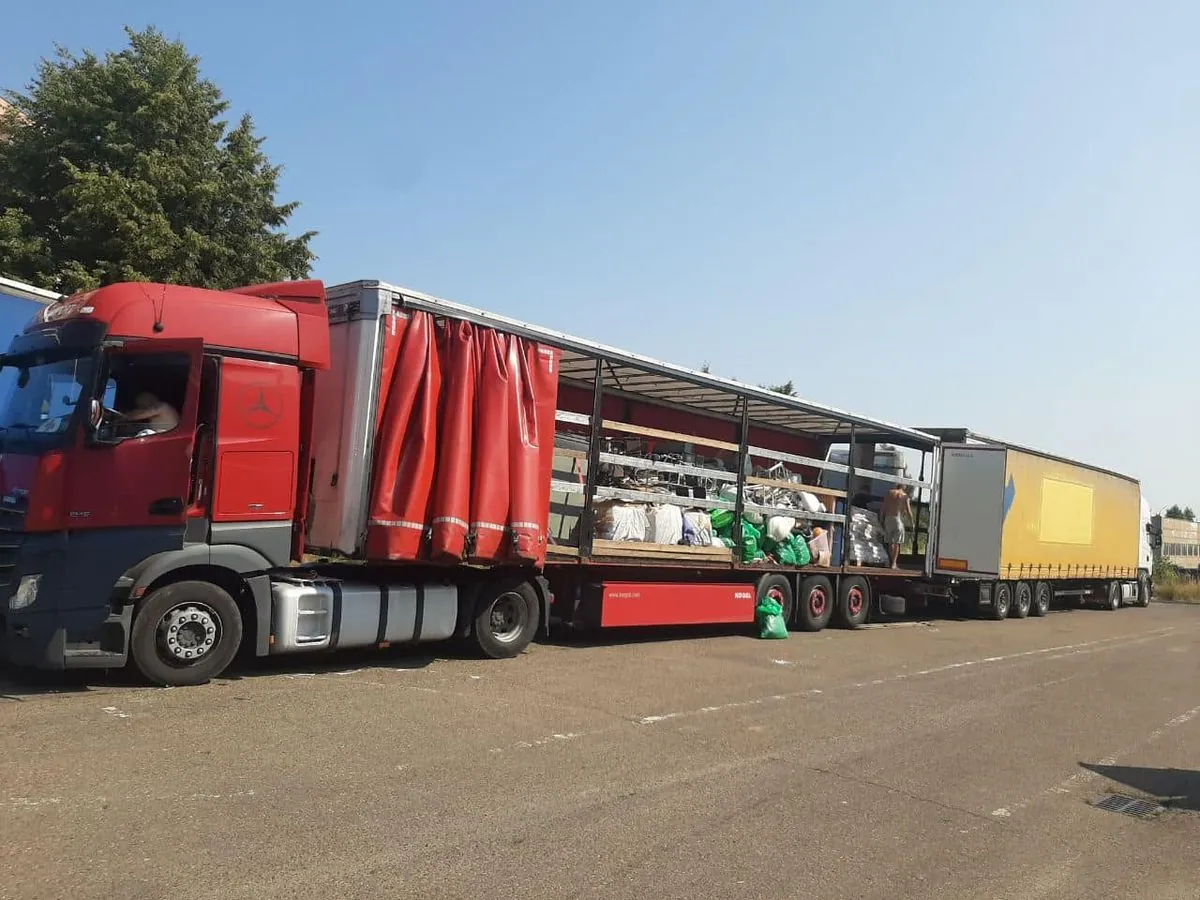
You have several areas of activity. You have brought to Ukraine various humanitarian aid, more than 100 jeeps for the military, and one fire truck. But perhaps the activity of your foundation in bringing in various medical equipment, which you provide to hospitals and clinics not only on the front line, but also in many regions of Ukraine, should be highlighted separately.
- During the work of our foundation, we have brought 39 ambulances to Ukraine. Out of 59 trucks with humanitarian aid, 30 of them were carrying medical equipment. These are ultrasound machines, artificial lung ventilation (ALV) devices, dialysis stations, laparoscopic stands, electric functional beds, couches, gurneys, defibrillators, infusomats, and portable equipment. We send most of the portable equipment to the front line: Kramatorsk hospital, Liman, Kharkiv, Mykolaiv, Zaporizhzhia regions.
We also provide equipment to medical institutions in Ivano-Frankivsk, Khmelnytsky, Zhytomyr, Dnipro, and Kyiv regions.
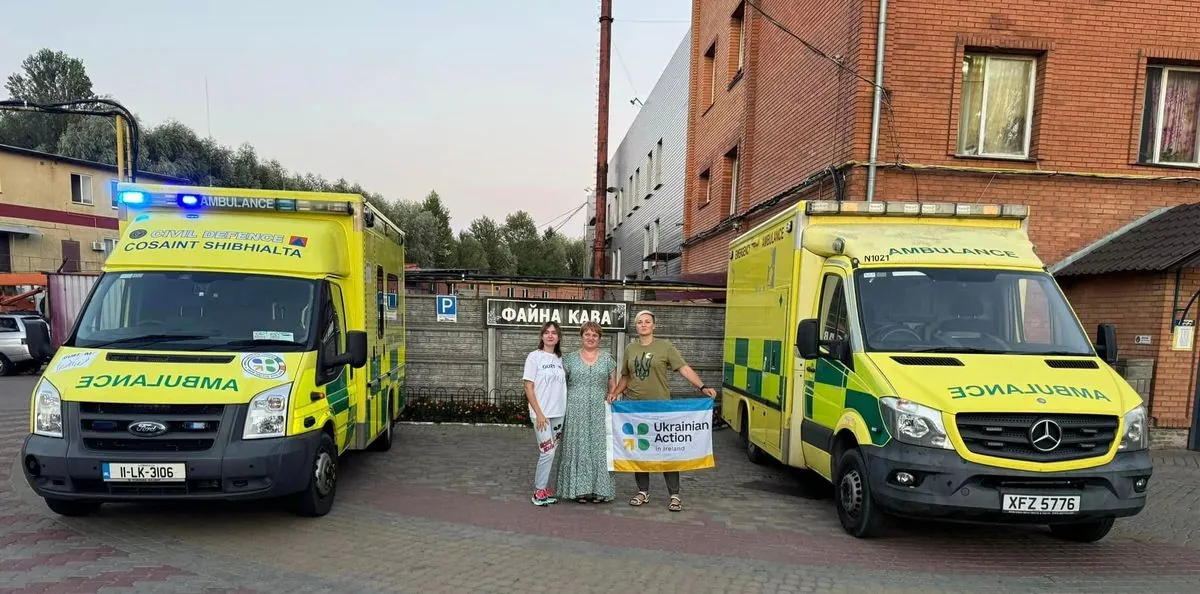
How did your foundation manage to achieve such results in such a relatively short time, since you really do bring vital equipment to Ukrainian medical institutions?
- A year ago, we signed a trilateral agreement with the Association of Ukrainians in Ireland and the Irish Ministry of Health. We receive both new medical equipment and used equipment from them. But there is an important point here - used equipment from Ireland has much more resources for further work than the equipment used in most medical institutions in Ukraine.
Recently, we delivered ventilators to one of the Kyiv hospitals where the children from Okhmatdyt were transferred. The chief doctor told us that these devices are the highest quality in the world, but they have only worked for 100 hours and can work much longer.
You've talked a lot about helping people all over Ukraine. How do you specifically help in your native Brovary community, and how do you cooperate and communicate with the local authorities?
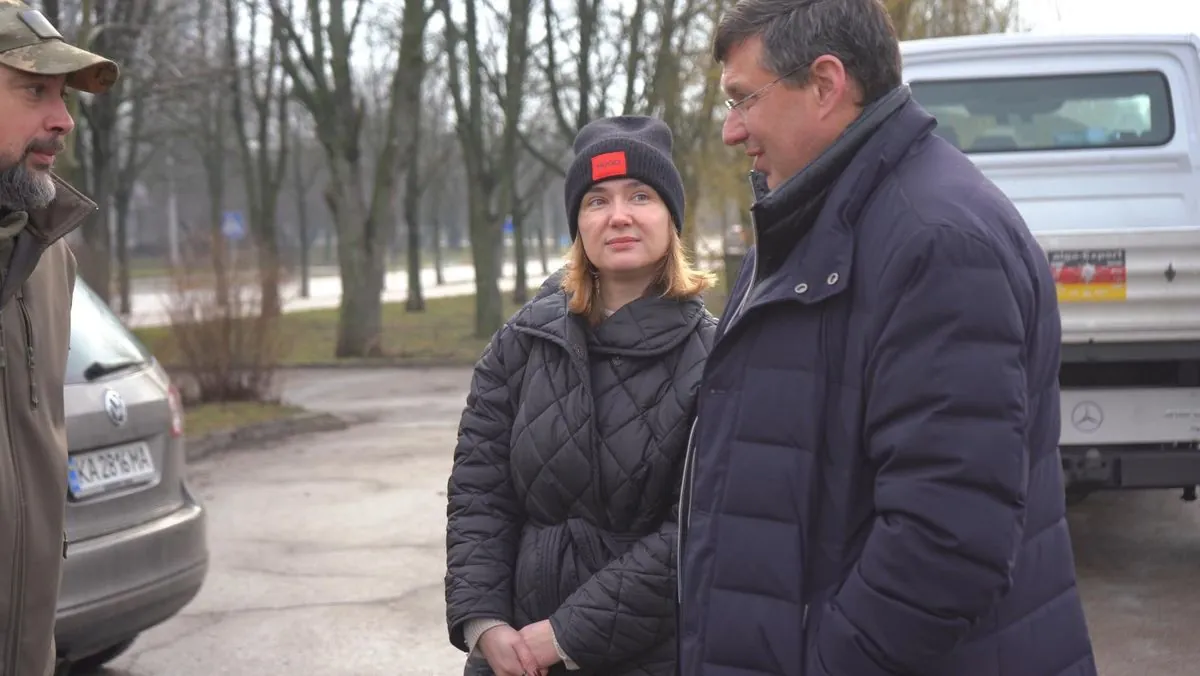
- A year ago, we brought a variety of medical equipment to Brovary: anesthesia stations for ultrasound and X-ray machines, laparoscopic stands, and ventilators. We regularly provide Brovary Hospital with what we can: circuits for ventilators, gowns, medical gloves, needles, syringes, and surgical kits.
And this is not only medical assistance for our community. A year ago, we handed over a 580 kW generator to Brovaryteplovodoenergia.
We have maximum cooperation with the Brovary City Council. If I have any questions, the mayor of Brovary, Ihor Sapozhko, will always respond and support me, and we, in turn, try to help and resolve issues.
When people contact me, I tell them what's here and how we can help, and there is always a response. That's why we always have contact with the authorities and the mayor. And thanks to this, we have direct contact with the community residents. People come to us, write on social media, for example, to ask for wheelchairs or crutches. Recently, we received a letter from a mother whose son has a disability. We gave them a special medical bed for the child.
We also donated a large number of T-shirts for our young Brovary athletes.
One often hears the opinion that it is becoming more difficult to do volunteer work in Ukraine. Is this really the case?
It is very difficult to do volunteer work now. I want to say that I don't see any support from the state at all. It's just not there. Support from people? Many people have already lost faith. Many volunteers have simply stopped their activities.
We open meetings, but most of them are closed by our people from Ireland.
Our last collection was a big one - for an excavator. We bought it for 1.5 million for the guys. Ireland covered 99% of the amount.
In addition, due to the specialization of our foundation, the main problem for us is paying for logistics services. We need to order a truck, pay for a flight. It is harder to raise funds for these purposes. People want to donate specifically for the drone, for the jeep. And not everyone realizes that the delivery of all this also costs money. We cooperate with several companies that help us pay for logistics services. But it is still difficult.
What helps you not to give up, what gives you strength and inspires you to continue volunteering, how did your family perceive this important change in your life priorities?
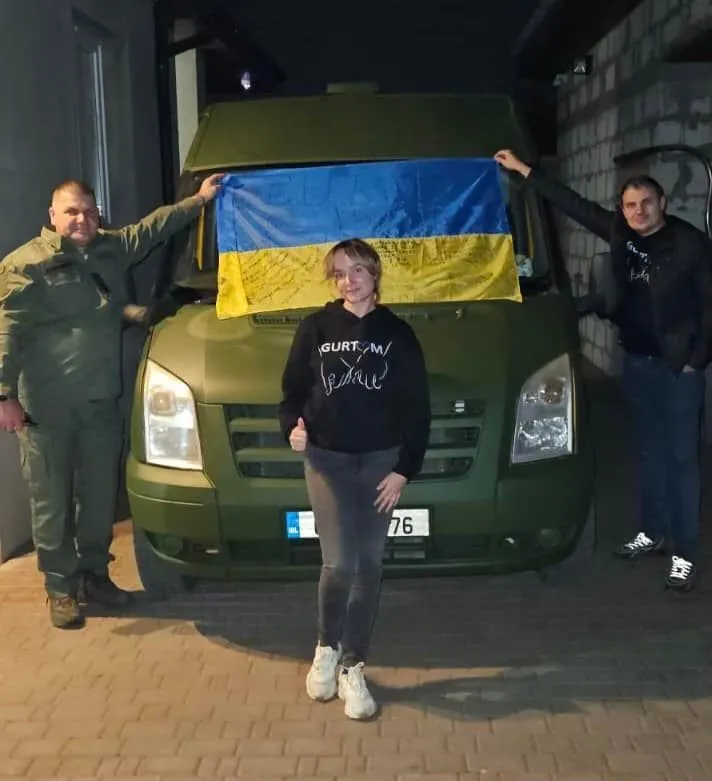
It is inspiring when guys from the front line thank us for the vehicles, when doctors thank us for the medical equipment we bring.
Unfortunately, my husband took my volunteer work very badly, so we divorced. I understand him: when you have a business, you build everything to work like clockwork, I was away from home from morning to night, constantly going to the front line, what man would like that.
My children support me. My son is 14 and my daughter is 10. They go with me to the warehouse. For example, if we receive medicines, they help me check whether there is a delay. Children help as much as they can and I am grateful to them for that.
